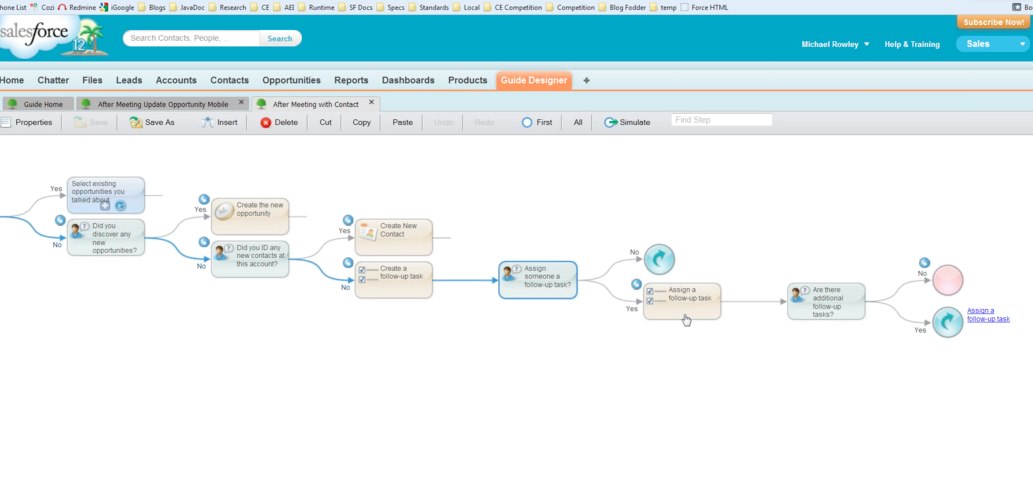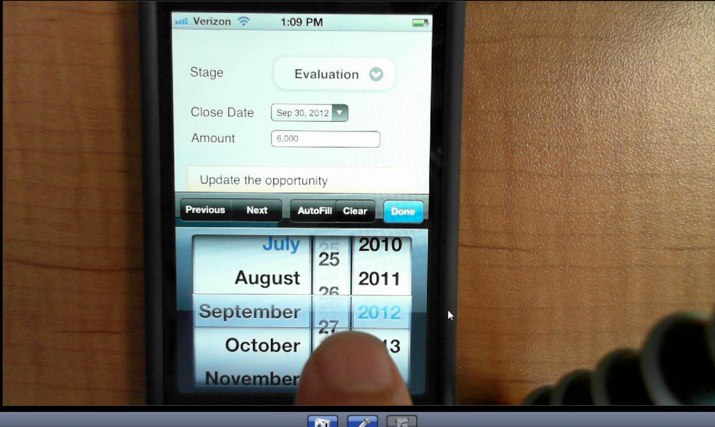The next generation of application development is starting to emerge. Frameworks act as a catalyst for building applications. Platform as a Service (PaaS) is helping accelerate application development as it abstracts the stack that developers usually have to build themselves. With integrated systems, the idea of application assembly is emerging with solutions such as IBM’s PureApplication System.
Active Endpoints symbolizes this trend with Cloud Extend Mobile. It’s a platform with a wizard like “mind map” framework that is used to build and deploy mobile apps that respond to voice and touch.
Today’s SaaS and enterprise apps are built for the PC. In Salesforce.com for example, there may be multiple pages with multiple fields that a field worker needs to fill out. That’s unwieldly on a mobile device. Instead, a sales person will often use a laptop or desktop to update the CRM or sales force automation system.
With Cloud Extend Mobile, a sales person can update from the field on a mobile device using voice or touch to do the inputs.
Active Endpoints is initially launching CloudExend Mobile with Salesforce.com.
Here’s how it works. Let’s say a sales person decides that she needs a quick way to update Salesforce after a sales call. She opens the CloudExtend Mobile App from the Salesforce.com App Exchange and uses it to create a mind map of what she wants to do. She can make it for herself, an associate or her team. She can add logic to it such as asking about the outcome of a meeting. For example, there could be a yes or no question such as: “Are there new opportunities?”
Once completed, the app, is deployed and can be used in the field on an iOS or Android smartphone. Users may update their meeting with the app by voice or touch.
Active Endpoints represents a new form of business process management software (BPM). It competes in the same space as Intalio and old stalwarts like IBM.
I like the app building process that comes with mind map technology. It shows how we are changing the way apps are developed. The complexity is increasingly abstracted. CEO Mark Tabor says Cloud Extend Mobile woud be a fit in a PaaS environment. I can see that, especially as we move closer to a time in which we build apps with components more than code.
I do have some reservations about Cloud Extend Mobile . Often it is the power user who uses this service the most. You need to build app libraries that anyone can use. It’s best for a well-organized team with a management who see the value and will make sure the sales workers use it. Otherwise, it’s a cool app that reminds me of mind map tools that I have used to automate Web searches and distribute photos and such to multiple places. Once you get it right, it works beautifully. It’s just a matter of getting to that point.


